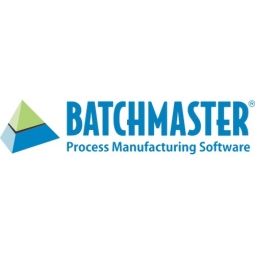Download PDF
Customer Success Story - CoValence Laboratories
Technology Category
- Functional Applications - Enterprise Resource Planning Systems (ERP)
Applicable Industries
- Healthcare & Hospitals
- Consumer Goods
Applicable Functions
- Discrete Manufacturing
- Quality Assurance
Use Cases
- Manufacturing System Automation
Services
- System Integration
The Challenge
CoValence Laboratories, a custom topical application developer and manufacturer, was facing challenges with their existing 'Out-of-the-Box' accounting package that supported a discrete manufacturing model. The system was not able to meet the growing sales and production needs of the company. Customizing the existing system to enable even the most basic functionality was proving to be a significant investment. Moreover, the company was also facing increasing compliance demands in their International Market requirements. The company realized that customizing their original accounting system would cost too much in meeting their business growth or the increasing compliance demands in their International Market requirements.
About The Customer
CoValence Laboratories, Inc is a Chandler, Arizona-based company that formulates and manufactures professional topical products. The company is a custom topical application developer and manufacturer offering a turn-key solution for taking a product concept through manufacture and fill, packaging, design, and product data writing. CoValence develops products for private brands within the esthetic, spa, medispa, and medical markets. This market leader is an FDA registered laboratory that has been researching, formulating, and manufacturing skin care products for the professional market for nearly 20 years. Their innovative formulas, personalized customer service, convenient low minimums, and strict confidentiality have made them an industry leader. CoValence's clients include plastic surgeons, dermatologists, spas, salons, and specialty niches, whose own customers, in turn, include everyone from the Hollywood elite to the savvy consumer, both nationally and internationally.
The Solution
CoValence chose BatchMaster ERP to overlay their existing accounting package and investment, while extending their capabilities in Cosmetics Manufacturing. BatchMaster ERP allows CoValence to meet the needs of customer and industry compliance, both in the U.S. and abroad. BatchMaster ERP contained specific features and reports out-of-the-box that were specific to the Manufacturing and Distribution model of topical application product manufacturers. BatchMaster ERP allows all departments of an organization to clearly communicate and share information. Where necessary, BatchMaster ERP makes the most important data part of the printed records used in the plant and sent to the customers. Some of these documents included Material Safety Data Sheets, Certificates of Analysis, Bar-coded Sales Orders, Back Order Reports, Pick-Lists, and Bills of Lading.
Operational Impact
Related Case Studies.
.png)
Case Study
Improving Vending Machine Profitability with the Internet of Things (IoT)
The vending industry is undergoing a sea change, taking advantage of new technologies to go beyond just delivering snacks to creating a new retail location. Intelligent vending machines can be found in many public locations as well as company facilities, selling different types of goods and services, including even computer accessories, gold bars, tickets, and office supplies. With increasing sophistication, they may also provide time- and location-based data pertaining to sales, inventory, and customer preferences. But at the end of the day, vending machine operators know greater profitability is driven by higher sales and lower operating costs.

Case Study
Hospital Inventory Management
The hospital supply chain team is responsible for ensuring that the right medical supplies are readily available to clinicians when and where needed, and to do so in the most efficient manner possible. However, many of the systems and processes in use at the cancer center for supply chain management were not best suited to support these goals. Barcoding technology, a commonly used method for inventory management of medical supplies, is labor intensive, time consuming, does not provide real-time visibility into inventory levels and can be prone to error. Consequently, the lack of accurate and real-time visibility into inventory levels across multiple supply rooms in multiple hospital facilities creates additional inefficiency in the system causing over-ordering, hoarding, and wasted supplies. Other sources of waste and cost were also identified as candidates for improvement. Existing systems and processes did not provide adequate security for high-cost inventory within the hospital, which was another driver of cost. A lack of visibility into expiration dates for supplies resulted in supplies being wasted due to past expiry dates. Storage of supplies was also a key consideration given the location of the cancer center’s facilities in a dense urban setting, where space is always at a premium. In order to address the challenges outlined above, the hospital sought a solution that would provide real-time inventory information with high levels of accuracy, reduce the level of manual effort required and enable data driven decision making to ensure that the right supplies were readily available to clinicians in the right location at the right time.

Case Study
Gas Pipeline Monitoring System for Hospitals
This system integrator focuses on providing centralized gas pipeline monitoring systems for hospitals. The service they provide makes it possible for hospitals to reduce both maintenance and labor costs. Since hospitals may not have an existing network suitable for this type of system, GPRS communication provides an easy and ready-to-use solution for remote, distributed monitoring systems System Requirements - GPRS communication - Seamless connection with SCADA software - Simple, front-end control capability - Expandable I/O channels - Combine AI, DI, and DO channels

Case Study
Driving Digital Transformations for Vitro Diagnostic Medical Devices
Diagnostic devices play a vital role in helping to improve healthcare delivery. In fact, an estimated 60 percent of the world’s medical decisions are made with support from in vitrodiagnostics (IVD) solutions, such as those provided by Roche Diagnostics, an industry leader. As the demand for medical diagnostic services grows rapidly in hospitals and clinics across China, so does the market for IVD solutions. In addition, the typically high cost of these diagnostic devices means that comprehensive post-sales services are needed. Wanteed to improve three portions of thr IVD:1. Remotely monitor and manage IVD devices as fixed assets.2. Optimizing device availability with predictive maintenance.3. Recommending the best IVD solution for a customer’s needs.







